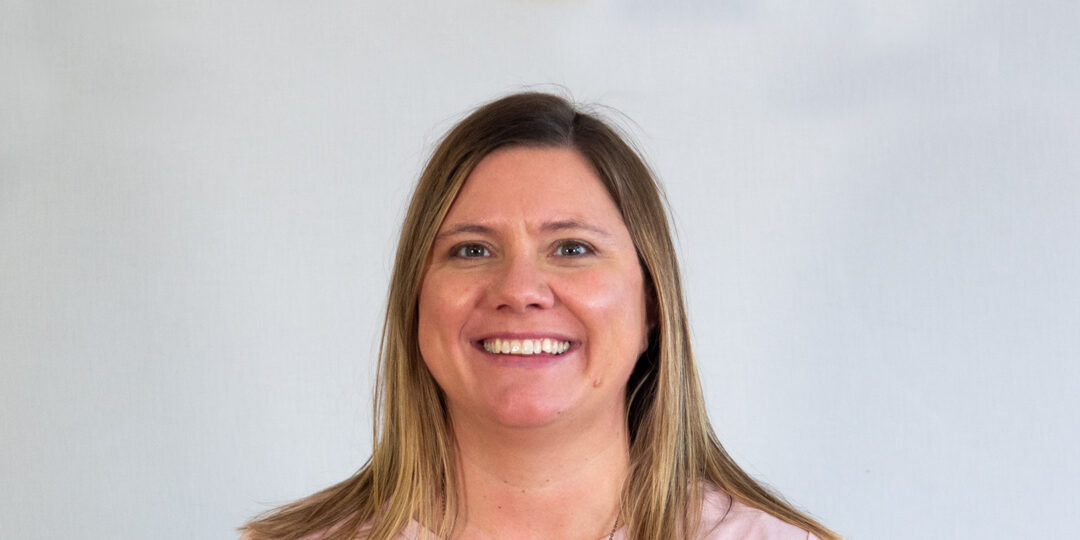Submitted by Angela Lunn, APNP, FNP-C
NorthLakes Community Clinic

Angela Lunn, APNP, FNP-C, is the Medical Program Manager at NorthLakes Community Clinic and is also a Nurse Practitioner in Ashland.
It is crazy to think about, but summer is quickly winding down. Before we know it, we will be heading into the end of August and most parents will have the panic of: “Does my child need a school physical before starting school?” The short answer is yes, but there is more to a school physical than saying ah and taking some deep breaths.
If you find yourself asking, “What are the benefits of a school physical and is it even important?”, let me help explain some reasons you might want to prioritize a physical as part of your back-to-school routine.
Every child should have a physical or well-child exam done every year. If you are one of those people who can’t remember when the last time your child was at a doctor’s office, making this visit every year at the same time of year might be helpful. One of those times could be the end of summer. Another good time to schedule these is around your child’s birthday.
The main topics discussed during the yearly physicals or well-child exams are growth and development, emotional well-being, motor growth and development, healthy habits, and immunizations.
School physicals or well-child exams are very important as your child grows and hits different milestones in their life. The visit will start with the basics of height, weight vital signs, and vision tests. This first step is already painting a picture for your provider. The height and weight will let your provider know if you are growing healthily. Your vital signs will give a quick snapshot of how your heart is pumping blood to the rest of your body. Then the vision check will check your eyes to see if you might need glasses. A lot of vision problems are found during these types of physicals. If concerns come from any of these tests, then the provider will recommend seeing a specialist for further evaluation. They will then ask questions about family history; this will give them an idea if they are at risk for any type of health issue.
Another step of this visit is to look at vaccines and make sure students are up to date on vaccines as directed by the state for public schools. This is looking at vaccines like MMR, varicella, polio, DTaP, meningitis, and hep B. If a student needs these vaccines, they can receive them during the visit. Your provider will also update you on new recommendations for vaccines as they change.
In addition to providers looking at your child’s physical growth, they are also looking at your child’s mental health as well. As our children grow older, their life gets more complicated and stressful. These school physicals are a great opportunity for your child to talk with their provider about how they are feeling. Or discuss any support they might need to help to manage such as stress. If there is any support needed your provider can help you navigate that path to getting the tools that are needed, whether that is medication, therapy or just giving suggestions.
This time is also a great time to mention any additional concerns that the parent or child might have about any aches or pains that they are experiencing. Early detection is key with physicals. If aches or pains are caught early, treatment options can start earlier and then lead to less injury or pain in the future. As a child’s body grows the body changes quickly so with rapid change providers make sure children are getting the proper nutrition to help the body grow as strong as possible. They might ask a series of questions regarding what a child eats. These questions make sure the child is getting the correct amount of carbs, protein, and fats to support their growing body while limiting energy drinks and other sugary foods.
The last thing I wanted to touch on is the difference between a sports physical and a child’s annual physical. A sports physical is a focused assessment of whether the child can play sports or not. It is looking at how the child moves and if there are any cardiovascular concerns with that child. They will also look at vaccines that are needed. Even if your child recently completed a sports physical, this doesn’t replace the annual physical.
I hope you find time to schedule your child’s annual physical with your primary medical provider. If you don’t have one, please consider calling NorthLakes Community Clinic. We offer Medical in Ashland, Eau Claire, Hayward, Iron River, Minong, Lakewood, and White Lake. To learn more, visit nlccwi.org.
Angela Lunn, APNP, FNP-C, is the Medical Program Manager at NorthLakes Community Clinic and is also a Nurse Practitioner in Ashland.






